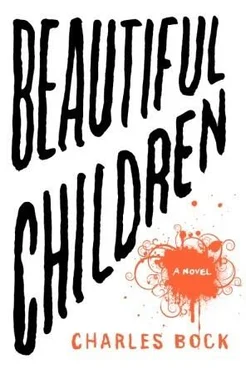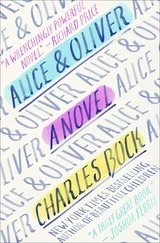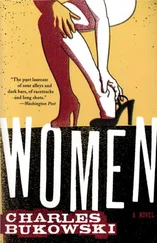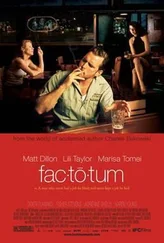“Oh. Fuck. I didn't — No, really. This is way better than any of Boner-bite's stuff,” Newell insisted. “I'm telling you. WAY better than all those guys. SERIOUS.” Newell flared now, punching Kenny on the arm. “Fucker.” Bouncing on his toes, his every movement built on itself, generating more energy, more excitement. Now the boy's face exploded. “Yeaaah-boiieyyyy.” He grinned crazily, and looked past an embarrassed, confused Kenny, toward the autograph table. “Here we go. Fucking awesomeness. ”
1.3
After her son's sneaker tracks had been found in the desert, Lorraine began to peek. Once the neighbors had stopped staring and the first round of leads had come up vapors, during the quiet hours before the dawn, when Lincoln was upstairs, passed out in the guest room. Or she would look during the lazy part of the afternoon, when the house was empty and her defenses were down. True, they'd agreed to let sleeping dogs lie, but she knew Lincoln did it, too: late at night, after he'd come home from the office, the police station, or a meeting with the latest in a series of infuriatingly incompetent private investigators. He watched when the house was dark and Lorraine was safely locked away inside what Lincoln still thought of as their bedroom. As often as not, he left the evidence inside the machine, where she discovered it the next day. Nor was it out of the realm of possibility that Lorraine had forgotten to put the tape back. Days might pass before one of them finally hit eject, tucked the cassette back into its little white sleeve, and placed the package back inside the pantry. There was no discussion. Pretenses had gone by the wayside. Watching wasn't the kind of thing she could help and it wasn't the kind of thing he could help. The button was pressed, the images ran: Newell sinking in his chair, chin gleaming, small eyes clouding.
Everyday banalities numb perception: with daily and continual exposure to someone, you do not see that person, but a compilation — memory and presence and projection, the embodiment of your feelings about the idea of that person. With this in mind, the charitable thing would be to report that Lorraine, and Lincoln too, when he watched — separately, in the deep of the night, his mind buzzing with desire and remorse and, not infrequently, from a few belts — that each parent recalled every physical change, no matter how minute, their son had undergone in the months between that taped Little League party and his disappearance. The charitable thing would be Newell alive in their memories in his most recent form: his hair still fresh from its back-to-school cut; his skin the milky, almost unhealthy white of a boy who'd spent his summer cooled by air-conditioning; the extra bit of languorous heft to his face. That would be the charitable thing. But with the passing of time, the sad truth is that each physical discrepancy would double and redouble in importance for Lorraine, and instead of a vehicle of generosity and relief, memory's precision would become a form of torture, not so much a reminder of what had been, but a rejoinder to all that was being missed — the distance between Newell and that tape widening even as Lorraine watched it once again.
Still, what was she supposed to do?
1.4
Dawn had broken, the dew still glistening on sun-browned lawns, his epic trek waiting, spread before him like some marvelously set picnic. Mindful of the sustenance he would require, Bing Beiderbixxe had disregarded his diet and purchased a drive-through sausage-and-egg sandwich. Just for kicks, he'd picked up sixty-four ounces of caffeinated carbonation. Then he'd set off, onto the normally knotted 405. Even on a Saturday morning, even as the sky above the cement husk of freeway was turning lighter shades, the four largely barren lanes had been a pleasant surprise for Bing, who, accelerating steadily, had driven with his sandwich in his free hand and the giant soda cup nestled between his thighs. A life-size cardboard cutout of Wendy Whitebread was crammed across the rear of his hatchback, a milk crate of comic books sat shotgun. Bing's newly purchased “going out outfit” (silver cabana shirt, black designer jeans) lay carefully draped over the crate. He'd headed north and east, making good time, passing Anaheim's tawdry theme parks and Corona's clot of auto malls, and then Riverside, which didn't have a river or any sides, but only, improbably, even more auto malls. Rough calculations had him reaching the Mojave well before the sun hit its zenith, which would allow him to avoid the desert's most intense heat, and keep his crappy little engine from blowing. Terrific. The scope of Beiderbixxe's genius did not include impromptu gasket fixing.
The yucca trees and sagebrush and cacti; the sand dunes and pebble heaps and drum-hard earth; the breathtaking and seemingly endless desert; the emptiness; the lull. Six hours. Plenty of time to settle into a rhythm, to retreat inside the maze of his own thoughts, to straighten out just when he was supposed to hold ’em and why he should fold ’em; to recall the guideline about bringing into a casino only the cash he could afford to lose; to extrapolate how much this was, given his circumstances; to revise the figure to reflect worst- and best-case scenarios. Bing had played his latest favorite CD four times in a row. He'd learned the lyrics to all the songs and, for the sheer pleasure of it, indulged venomous thoughts about how much he disliked his two housemates. He'd fantasized about getting his own place and, then, about creatively carnal ways to piss away his gambling winnings.
Yellow ribbons alternated with American flags, hanging from every other telephone pole and billboard. Eighteen-wheelers passed from the opposite direction, the hatchback shaking in their wake, the car threatening to run off the road. Somewhere around Barstow, with skeptical thoughts forming around whether the store would have any window promotion, Bing had wondered, too, if anyone would even bother to show.
Male-pattern baldness had kicked in uncommonly early for Bing. When classmates had started expressing their personalities with hair sprays and tubes of dyes and even the occasional muttonchop, his wheat-brown hair was already receding from his temples, thinning around his crown, clinging to his shirts, and floating into his cereal. His increasingly shiny head served as an exclamation point atop what he saw as an already staggering assembly of bodily injustices: asthma; a mealy voice; a nearly pathological aversion to sweating and sweat-related activities; nearsighted and farsighted. As a child Bing had been challenged in the height department, though his tummy had been given no such restriction. His ass was the size of an elephant's skull. When nobody was looking, Bing sucked his thumb; when people were, he picked his nose. And that name! So what if his parents had loved jazz: what kind of goddamn name was that to pawn off on your kid?
Was it any wonder that, even as a grade-schooler, Bing had felt far less comfortable with people than with images and technologies? That his developing intellect and nascent personality had suffered so greatly upon entering the arena where sex became a possibility? Even now, Bing couldn't offer a definitive answer about this stuff. This much was sure: where his older brothers, Satchmo and Jolson, had been gregarious and well-adjusted teenagers, where younger sisters, Dizzy and Bird, had been scholarly and well-liked, Bing had been awkward and ill-equipped, re-treating from and, in fact, surviving his adolescence via pop culture's many alleyways, entertainments that were neither fully active nor passive, obsessions that weren't social but, rather, a social. He collected every comic under the X-Men umbrella (purchasing duplicate copies — one to read, one for posterity). He religiously updated his library of science fiction and pulp novels with the latest installments of each series (no matter how sloppy and half-assed each successive volume may have been). He constantly referenced the dialogue of sitcoms he'd memorized during afternoons of syndicated reruns (shows that hadn't been all that funny the first time he'd seen them). Bing inhaled kung fu videos and pay-per-view wrestling extravaganzas until vicarious testosterone all but burst through his flabby arms, then he headed out and played old-school stand-up arcade games until skill allowed him to stretch a quarter for like a week. On a daily basis, for three consecutive months, in an infamous phase whose mere recollection, to this day, still caused him physical pain, Bing Beiderbixxe had donned a cape. Beiderbixxe the Misguided! Bing the Misunderstood! The listless fat kid who could get only as close to a naked woman as the nearest Sports Illustrated swimsuit issue, Maxim subscription, or Cinemax's Max After Dark episode would allow. The quiet, unthreatening loner who was told by the plain brunette at the next desk, “I like you — as a friend.” The wisecracking antihero who had convinced himself he would overcome insurmountable odds and rescue the planet from undefeatable evil and, in the process, melt the heart of the unwinnable babe! The bitter jaded mess, so deluded by television and movies, he actually believed himself capable of landing supermodel-caliber women and therefore refused to adjust his standards!
Читать дальше











